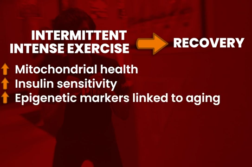BOSTON, Mass. (Ivanhoe Newswire) – In some cases, it’s easy to see what we’ve inherited from our family, like mom’s smile or dad’s blue eyes, but when it comes to certain health conditions, genetics may play a critically important role for generations. Here’s the story of one extended family with a genetic form of stomach cancer, and the courageous, but potentially life-saving decision many members chose to make. Genetic Counseling
Fifty-four-year-old Beth Lambert comes from a big family. She’s one of five siblings, but in 2006, her brother Steve died from a rare form of stomach cancer.
“Just watching our brother go from someone who was so full of life, and he really was as much as he could be up until the end,” Beth remembers.
At the same time, their mother was battling colon cancer. Her cancer cells had the same unusual signet cell pattern as Steve’s. An alert physician suggested a genetic test. Kristen Shannon, MS is a certified genetic counselor at Mass. General Cancer Center. She says a huge increase in the number of testing labs has made a recent, dramatic difference in the field.
“In addition to BRCA1 and BRCA2, we can test for up to 80 different genes that are associated with cancer,” Shannon explains.
One of those genes – the CDH1 mutation – is responsible for the aggressive stomach cancer that claimed Beth’s brother.
Beth tells Ivanhoe, “My sister Kathy tested positive. My brother Mike tested positive. Our brother Dave tested negative and then I tested positive.”
Since the cancer involved the lining of the stomach, prevention meant having their stomachs surgically removed.
Beth and her brother Mike scheduled their surgeries on the same day, then, the focus shifted to the next generation. Mike’s daughter Shannon Walsh tested positive for the CDH1 gene in college. She also chose to have her stomach removed. Genetic Counseling
Walsh says, “It went from a, ‘You can wait as long as you want, sort of within reason’ to, ‘You should really think about doing this.’”
Beth and her family eat small meals. No food is off limits, but some are easier to process than others. Despite the challenges, Beth is thankful their mother started them on the path to uncovering their genetic risk.
“If she hadn’t done that, you know, we’d be telling a very different story. We probably wouldn’t be here to tell this story, to be honest,” Beth expresses.
Beth and her family take nutritional supplements to compensate for foods they have a hard time processing. In addition to Beth’s niece Shannon, one of Beth’s children, and two of her brother Steve’s children have tested positive for the stomach cancer gene. The family is involved in a non-profit group called “No Stomach for Cancer” to raise awareness and money for research. They also say it’s important to pay attention to your family health history, and if illness seems to follow a pattern, find a genetic counselor to offer guidance.
Contributors to this news report include: Cyndy McGrath, Producer; Kirk Manson, Videographer; Roque Correa, Editor.
To receive a free weekly e-mail on medical breakthroughs from Ivanhoe, sign up at: http://www.ivanhoe.com/ftk
Sources:
MEDICAL BREAKTHROUGHS
RESEARCH SUMMARY
TOPIC: GENETIC COUNSELING: NO STOMACH FOR CANCER
REPORT: MB #5165
BACKGROUND: Stomach cancer, which is also called gastric cancer, is a growth of cells that starts in the stomach. Stomach cancer can happen in any part of the stomach. In most of the world, stomach cancers happen in the main part of the stomach. There are about 26,000 new cases of stomach cancer every year in the United States and about 11,000 deaths. Stomach cancer mostly affects older people. The average age of people when they are diagnosed is 68. About 6 of every 10 people diagnosed with stomach cancer each year are 65 or older. Genetic Counseling
https://www.cancer.org/cancer/stomach-cancer/about/key-statistics.html)
DIAGNOSING: Stomach cancer doesn’t typically cause symptoms during the early stages. Even the most common early signs of stomach cancer — often unexplained weight loss and stomach pain — don’t usually show up until the cancer is more advanced. Symptoms of stomach cancer include loss of appetite, trouble swallowing, fatigue or weakness, heartburn and indigestion, and/or feeling full after even a small snack or meal. Some ways that doctors diagnose stomach cancer are through upper endoscopy, endoscopic ultrasounds, radiologic tests, blood tests, and laparoscopy.
(Source: https://my.clevelandclinic.org/health/diseases/15812-stomach-cancer)
NEW TECHNOLOGY: On August 24th, Ibex Medical Analytics announced that they developed the world’s first artificial intelligence (AI) designed to detect gastric cancer. Each year, one million patients around the globe are diagnosed with stomach cancer. Ibex researchers and executives hope that their new AI can help save lives. Dr. Chaim Linhart, the CTO and Co-founder of Ibex, explains how this tool is part of a broader movement to adopt AI into healthcare. “In very broad terms, our AI algorithms analyze images of biopsies. Our AI solution can detect cancerous cells within the biopsy; it can pinpoint their location and grade the tumor. The AI insights are also used for streamlining working processes within the pathology labs,” Dr. Linhart explains.
FOR MORE INFORMATION ON THIS REPORT, PLEASE CONTACT:
Katie Marquedant
(617) 726-0337
If this story or any other Ivanhoe story has impacted your life or prompted you or someone you know to seek or change treatments, please let us know by contacting Marjorie Bekaert Thomas at mthomas@ivanhoe.com




